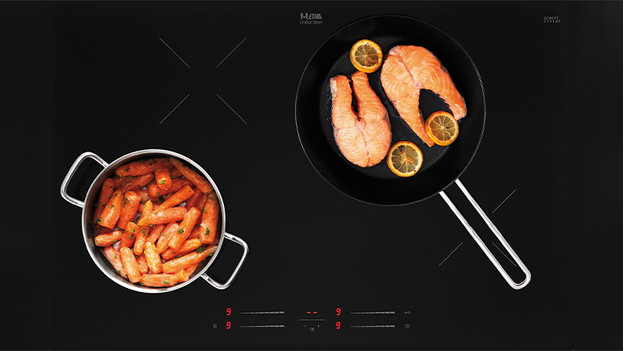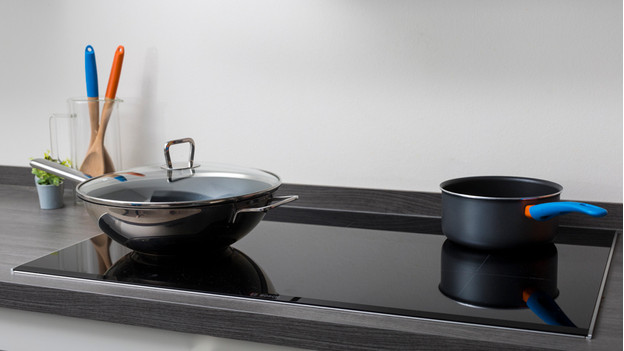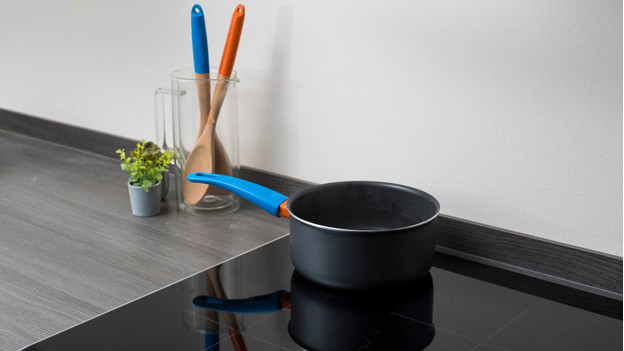
What does induction cooking mean for the environment?
Heats up faster

An induction cooktop uses a magnetic field to heat your pans. When you boil water on an electric cooktop, you can do so 2 times faster than on a gas cooktop. The reasoning is simple. If you cook faster, you use less energy and lower the costs.
No heat gets lost

If you place a pan on an induction cooktop, it only heats the bottom of the pan. This means that the zone adjusts to the size of your pan. You don't lose heat this way, which is better for the environment. With a gas cooktop, the complete cooking zone is heated. Even though your pan is smaller than that. As a result, you lose a lot of heat with a gas cooktop
Less CO2 emissions

Currently, an induction cooktop emits slightly less CO2 than a gas cooktop. An induction cooktop emits about 70kg of CO2 per year. With gas, that's about 80kg per year.
Rising prices

In the future, electricity is expected to become more environmentally-friendly and more affordable than gas. The gas price is rapidly rising at the moment. While energy costs are also higher, it's not rising as quickly. Do you have solar panels on your roof? You're generating energy to cook yourself this way, which saves you even more.
Conclusion
Only the purchase price of an induction cooktop is expensive. The cooktop heats up faster, so the cooking time is shorter compared to a gas cooktop. In addition, only the part of the cooktop where you've placed the pan gets heated. That way, no energy gets lost. With cooking on gas, you do lose heat. And since the gas prices are increasing significantly, cooking on an induction cooktop is becoming a smarter choice.


